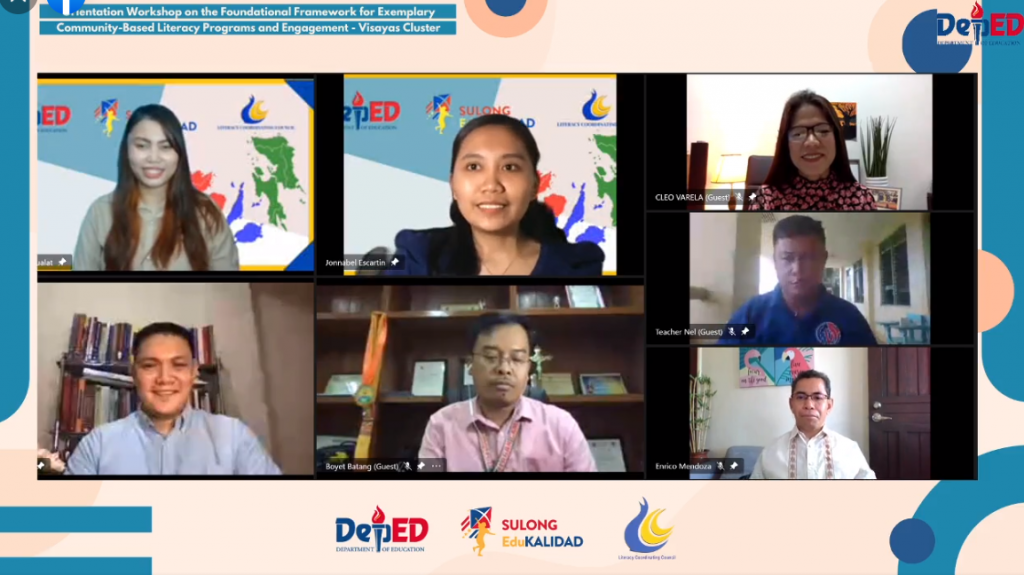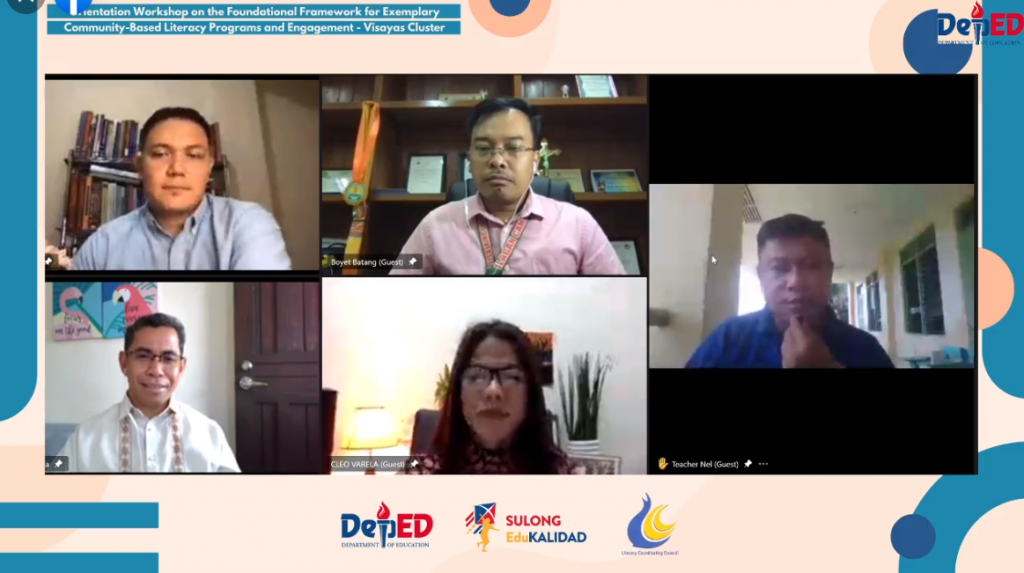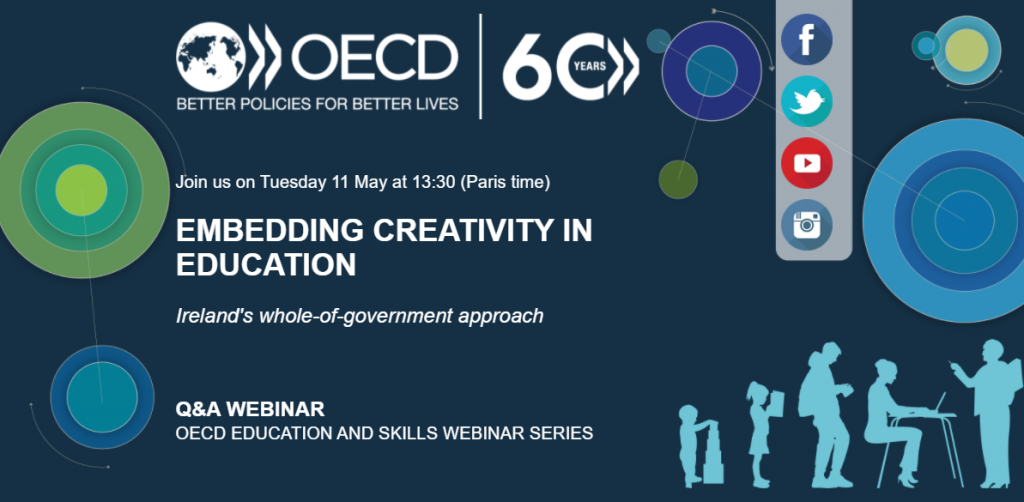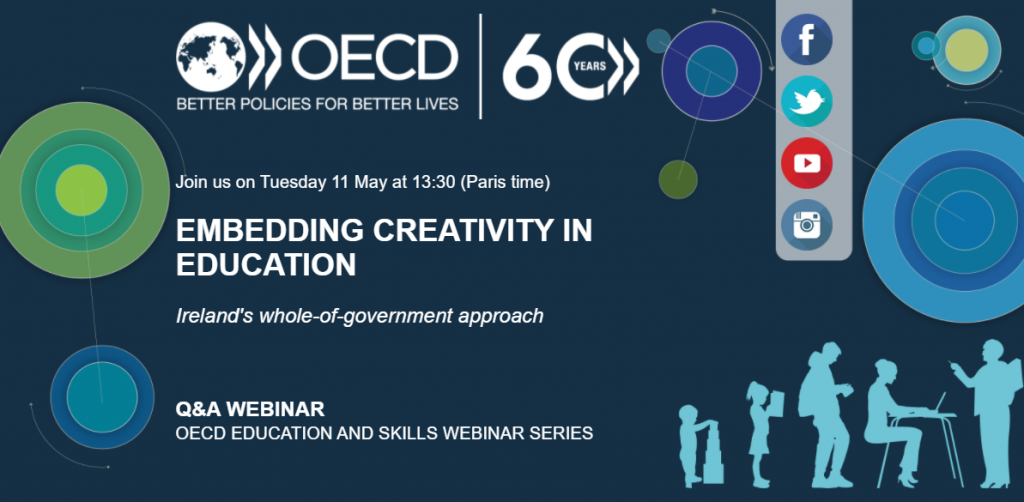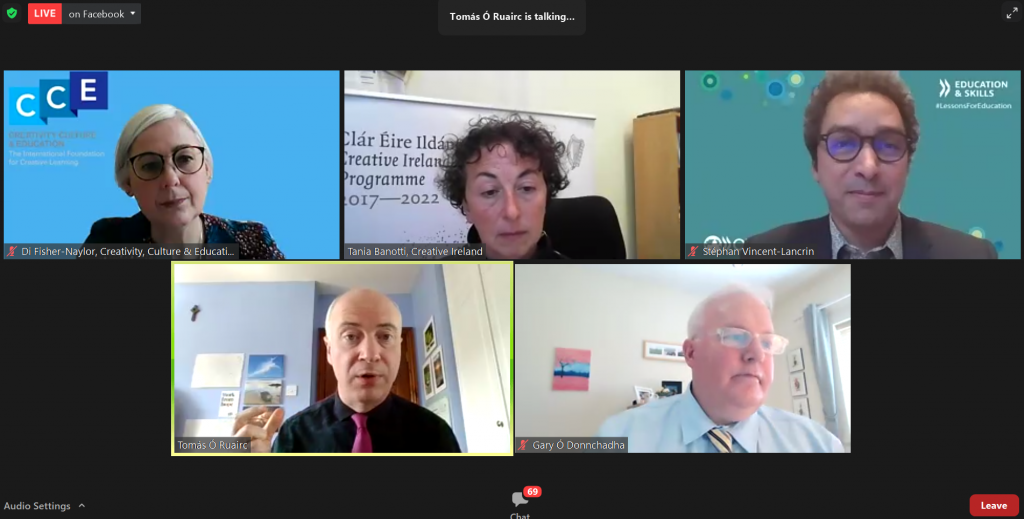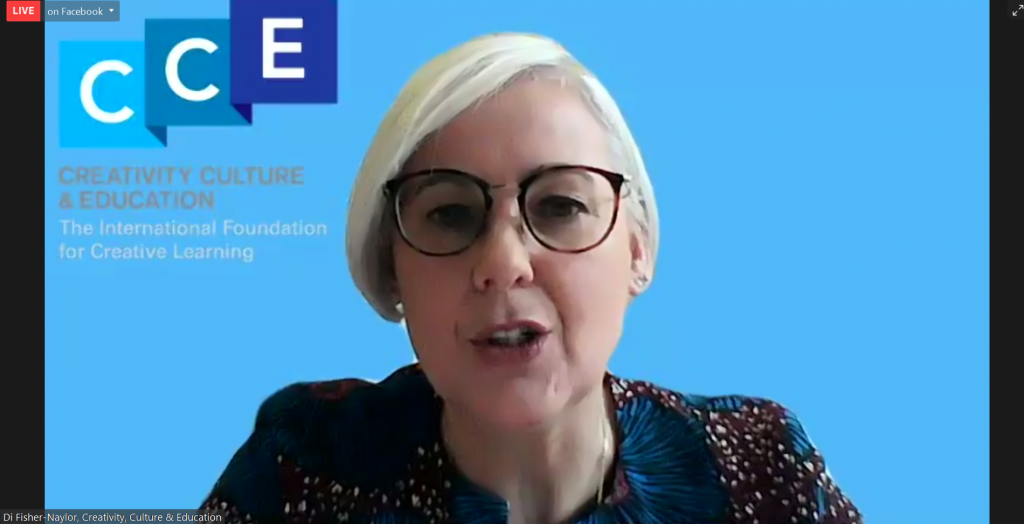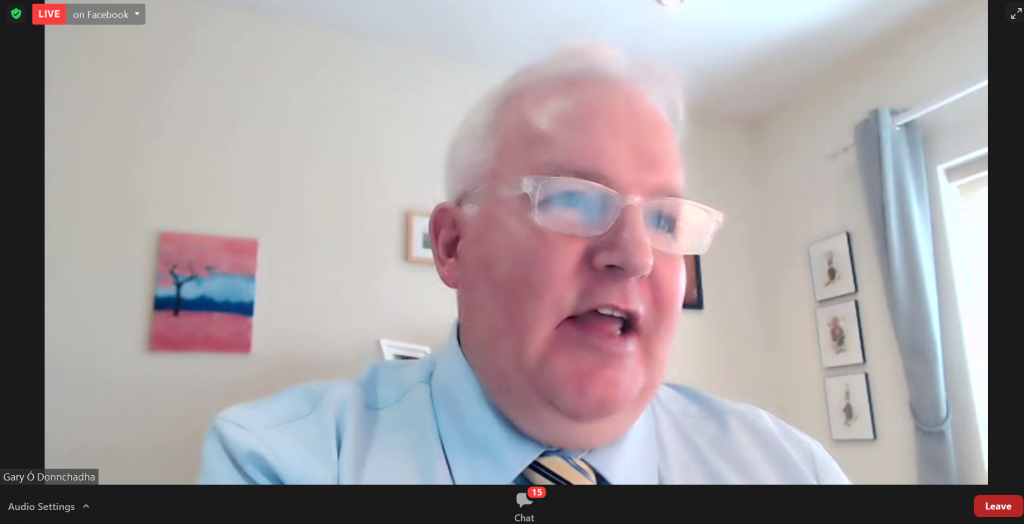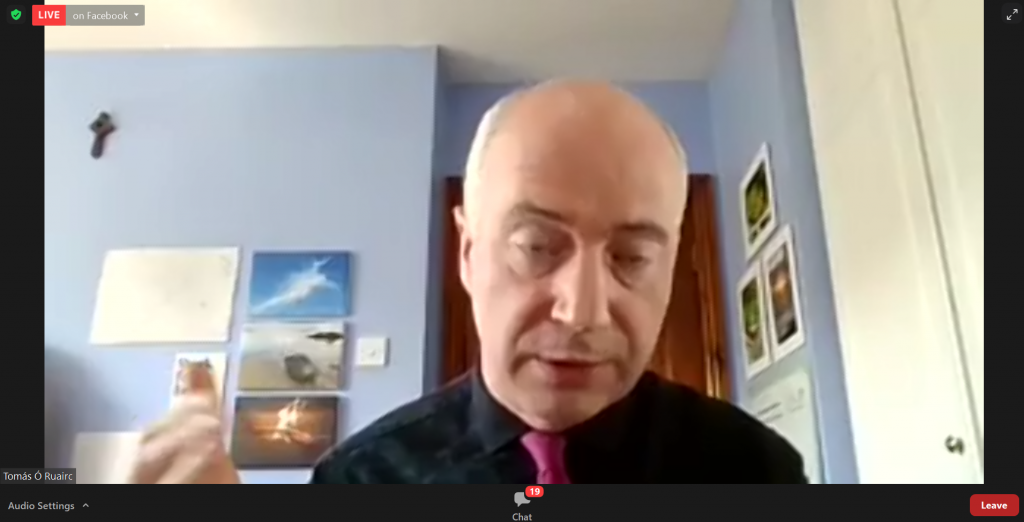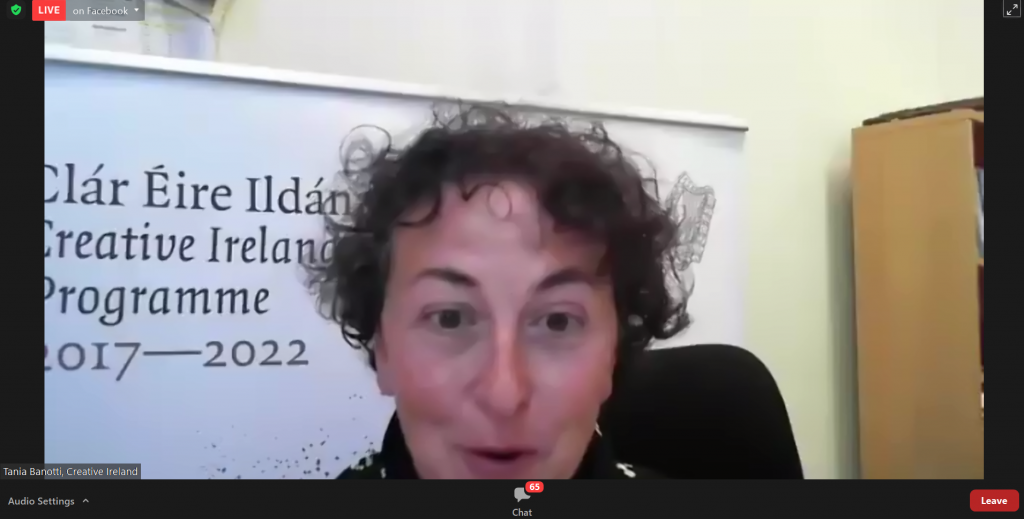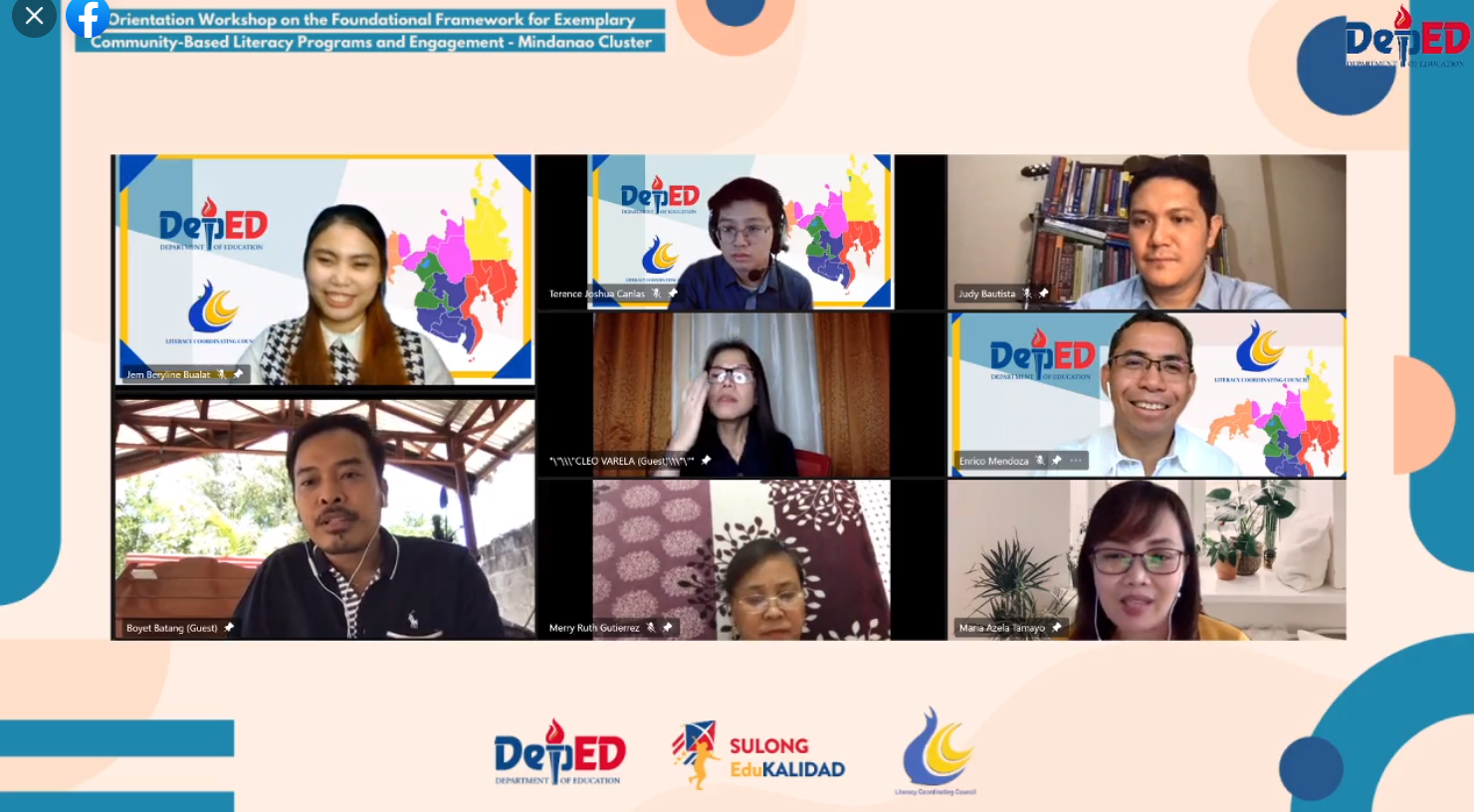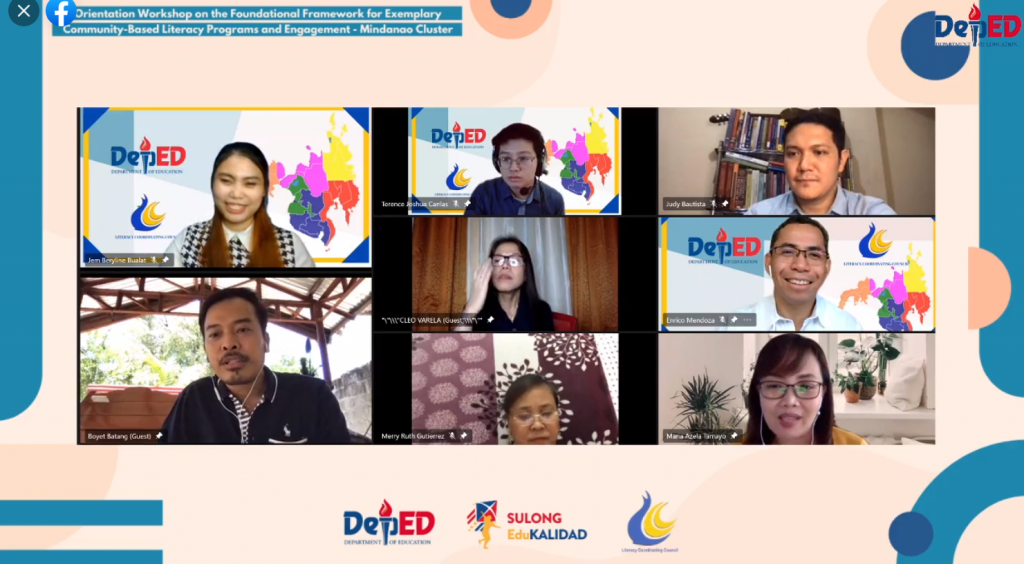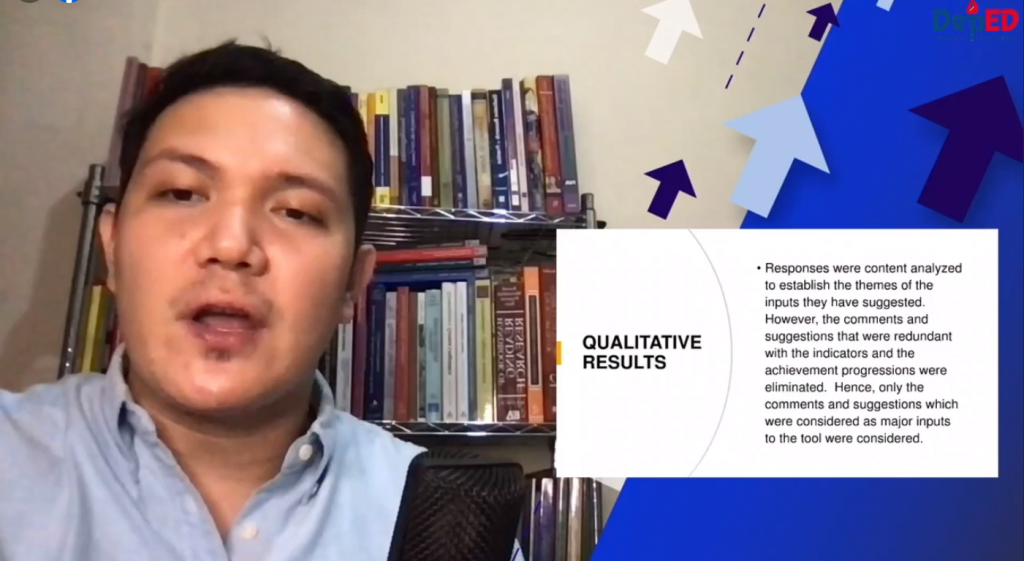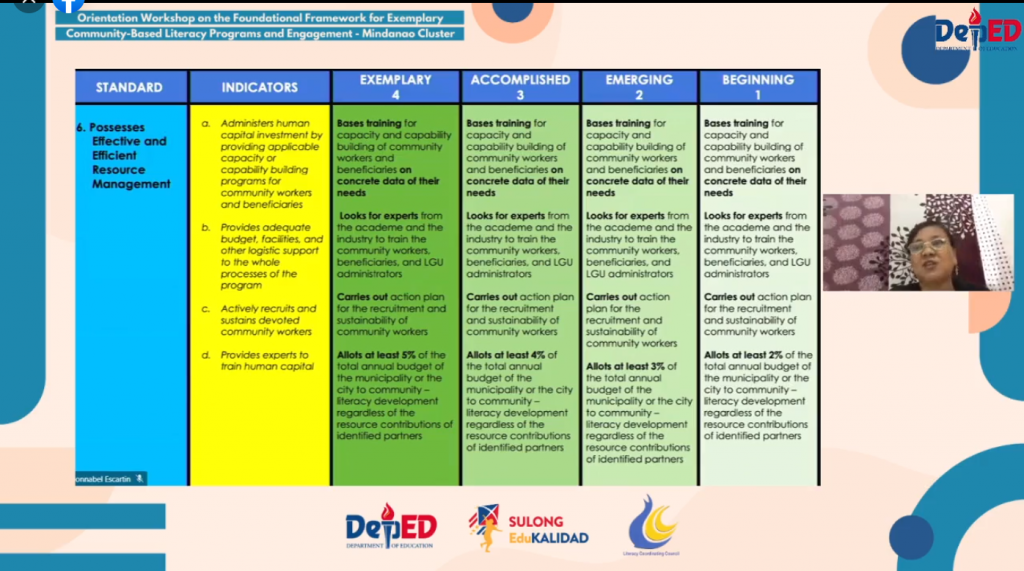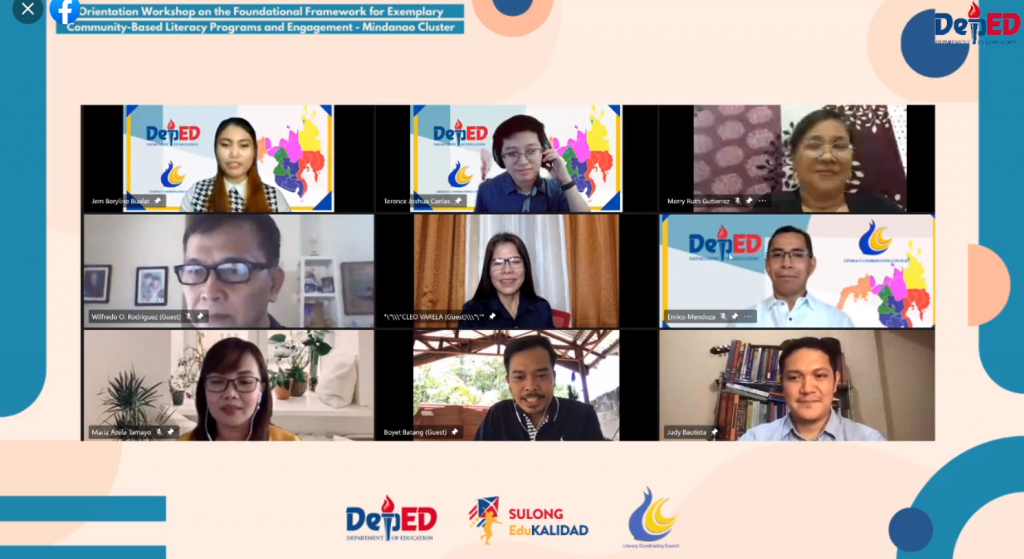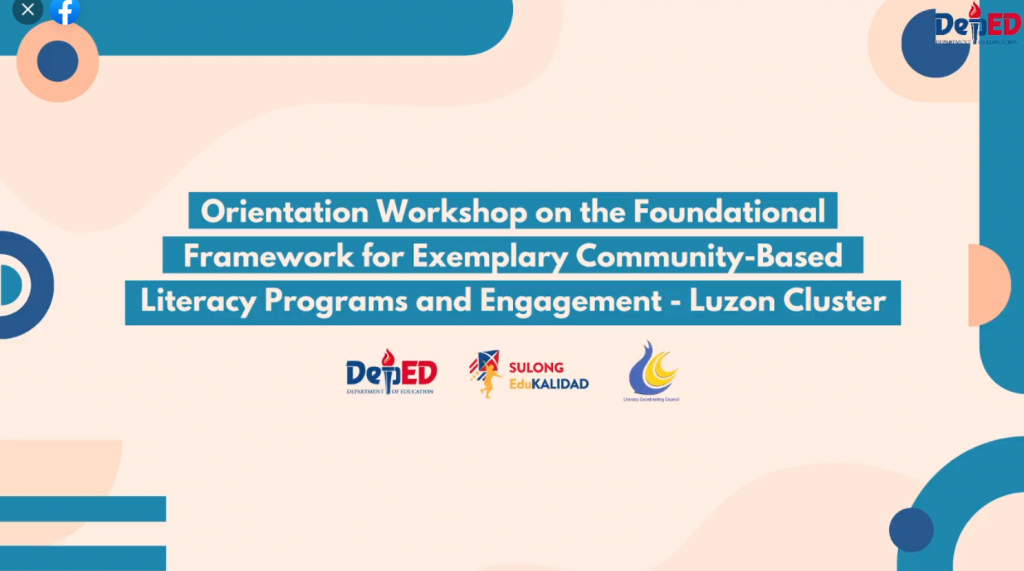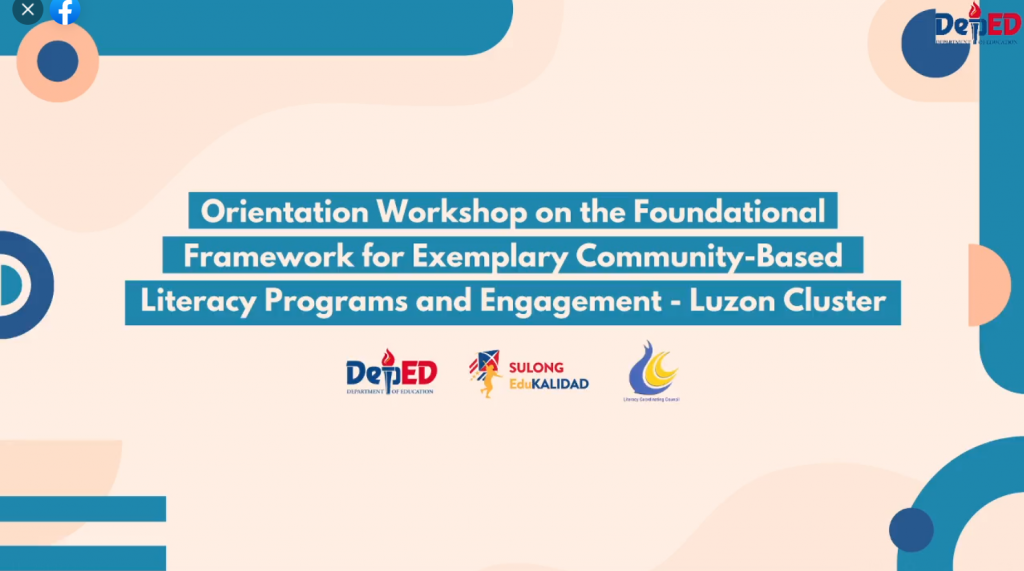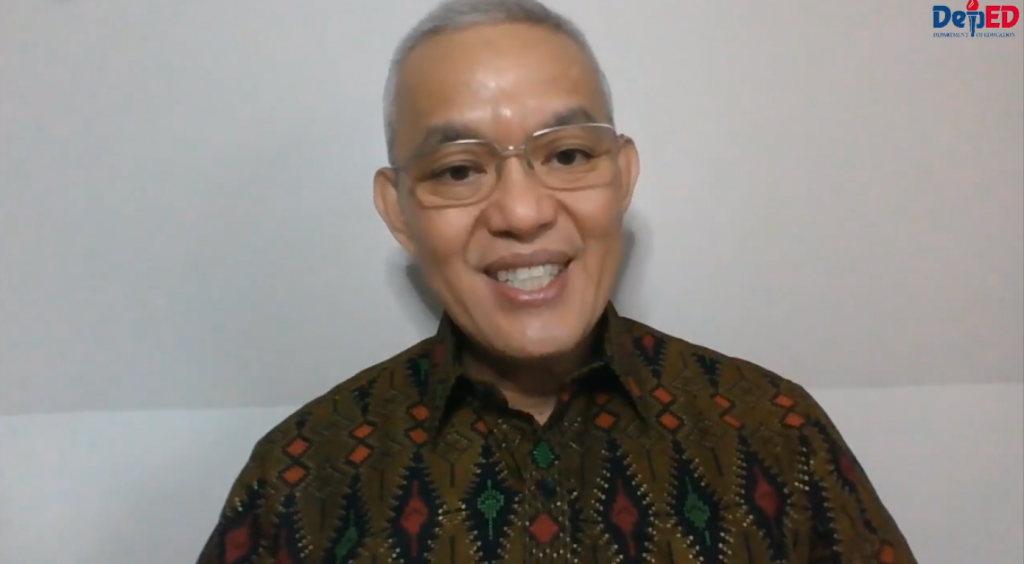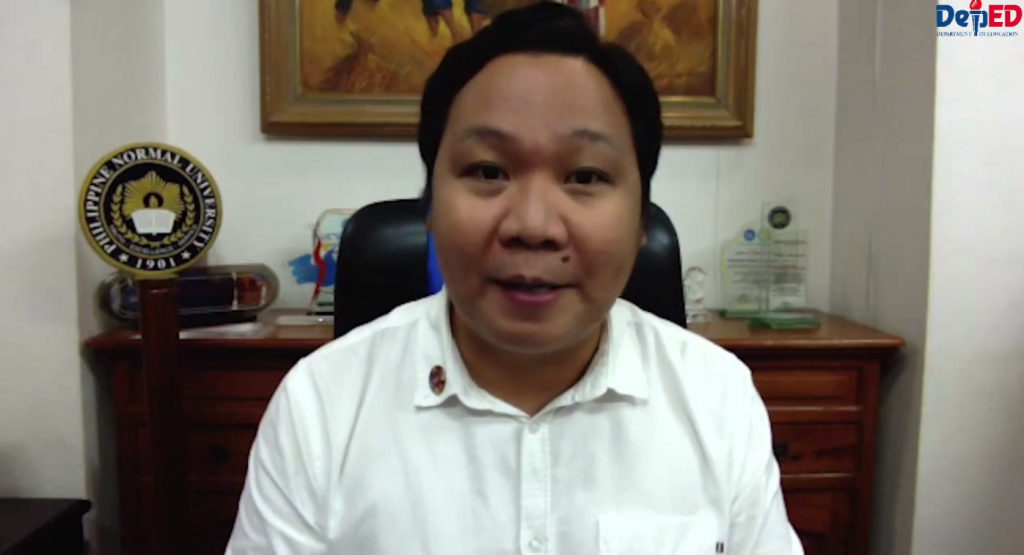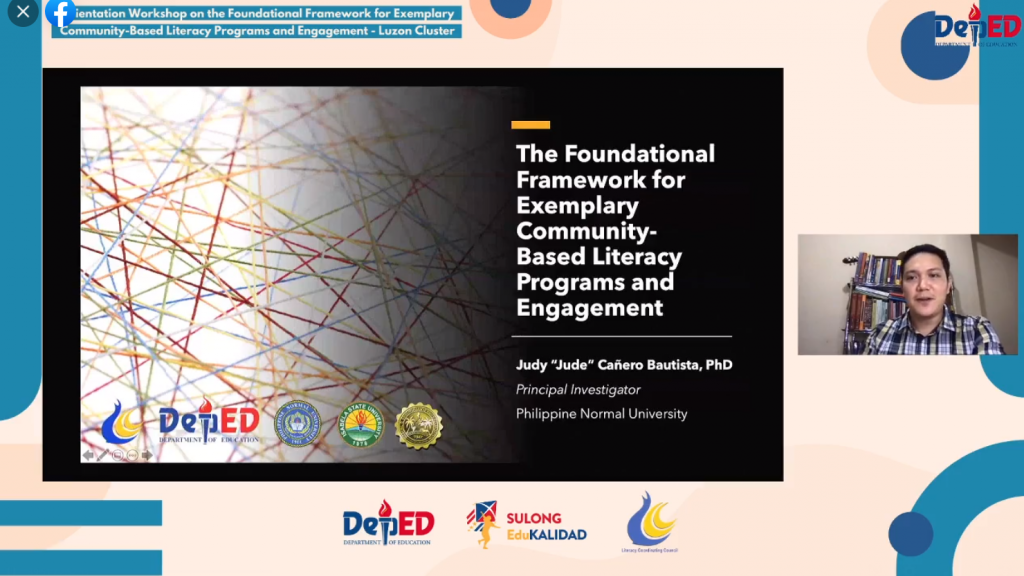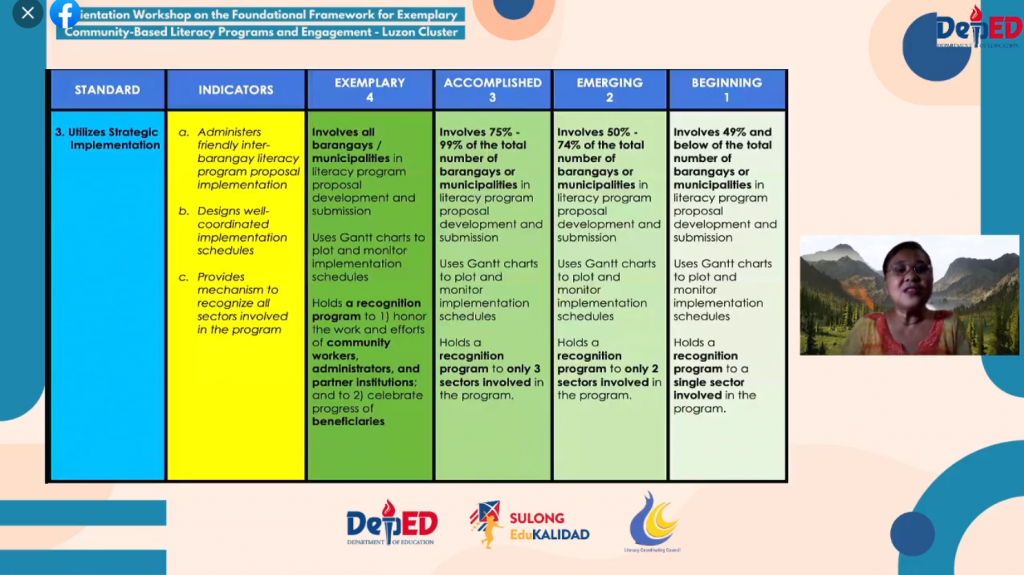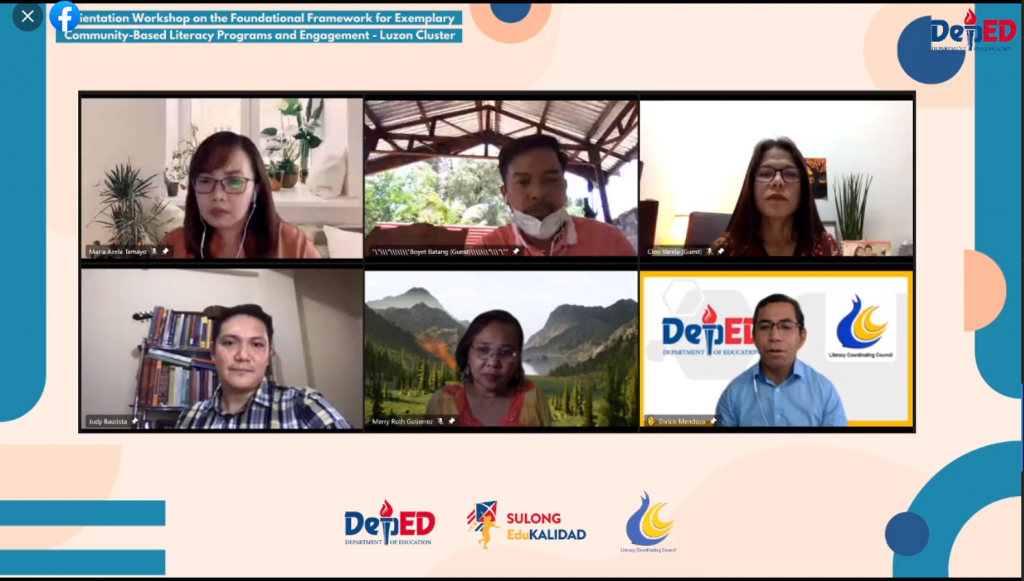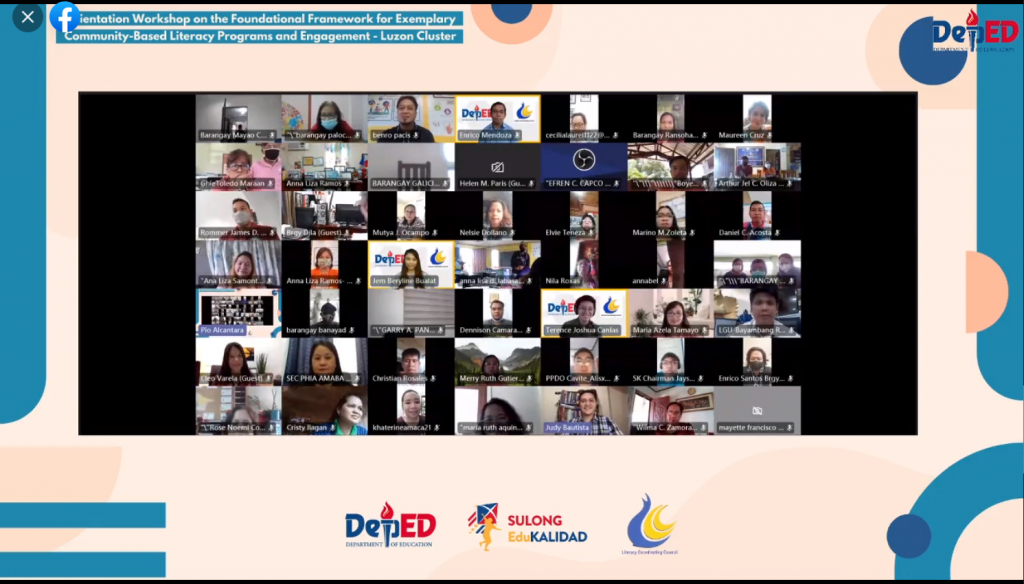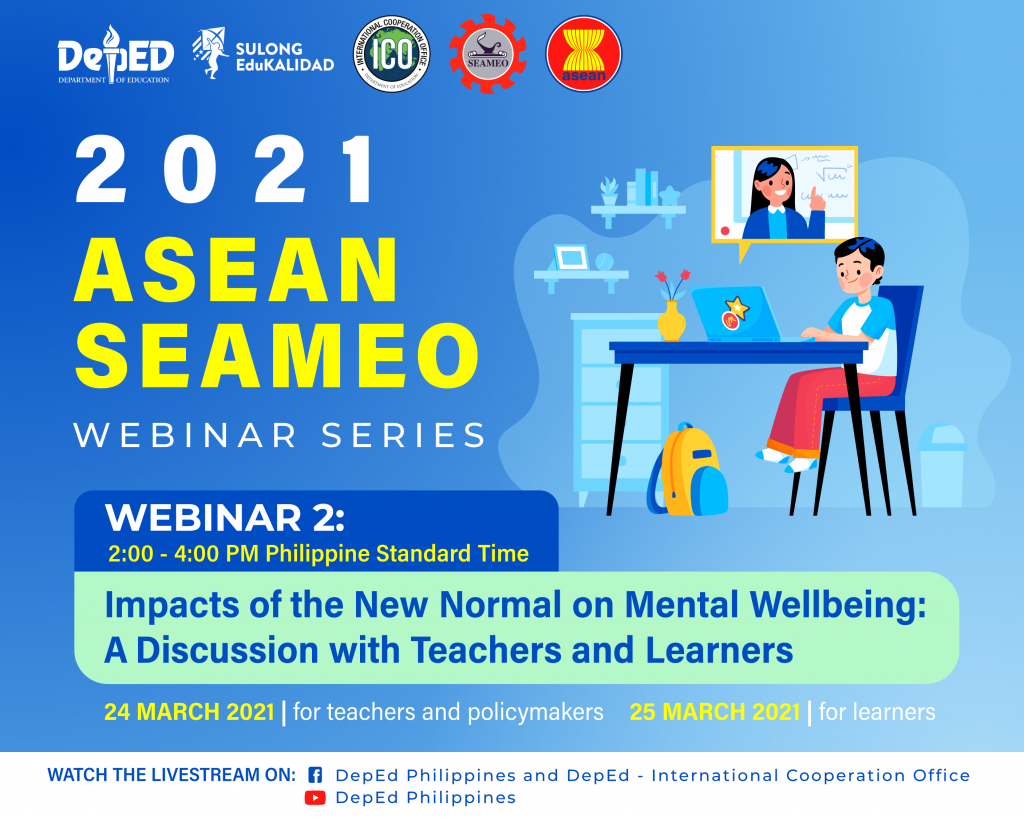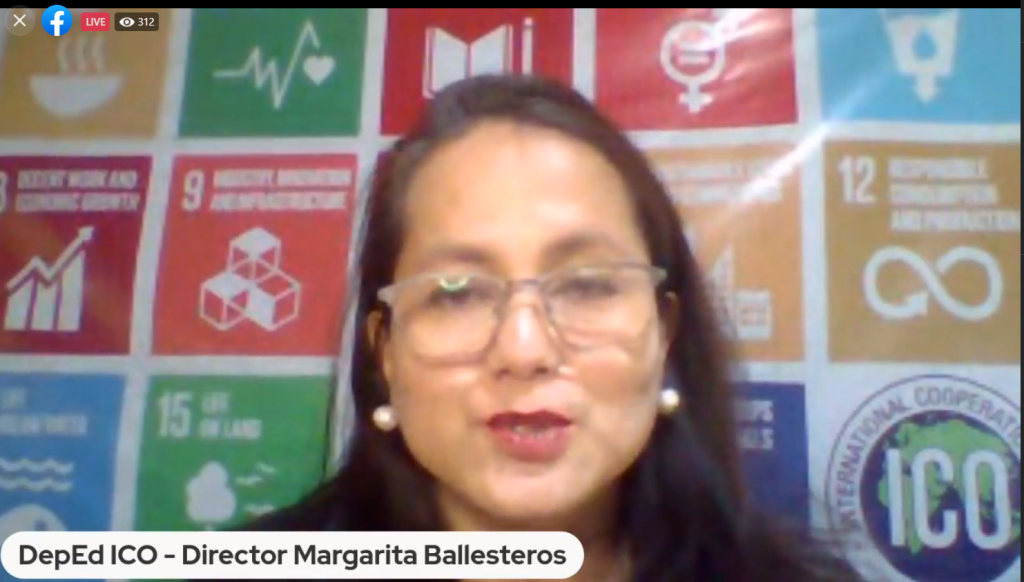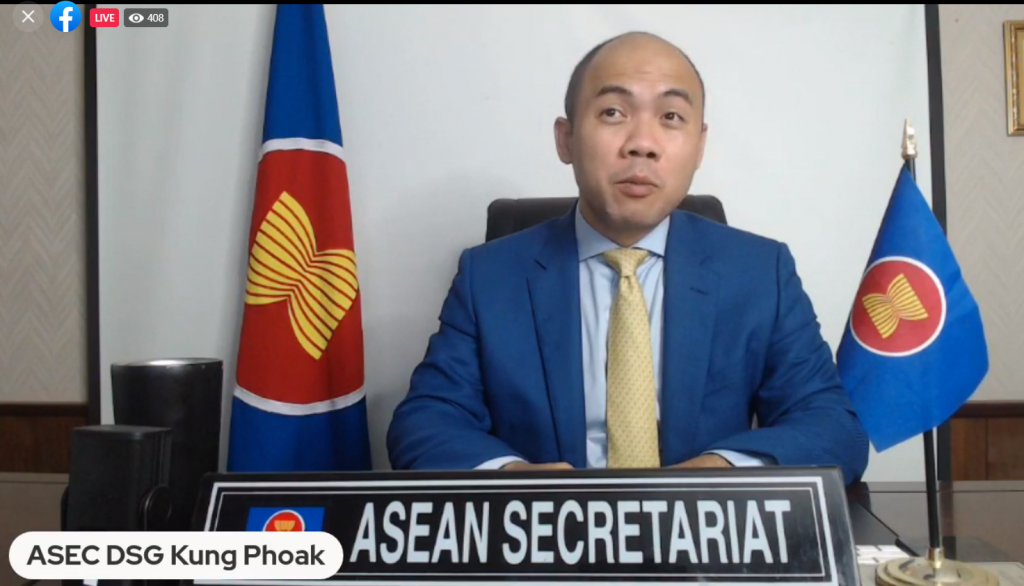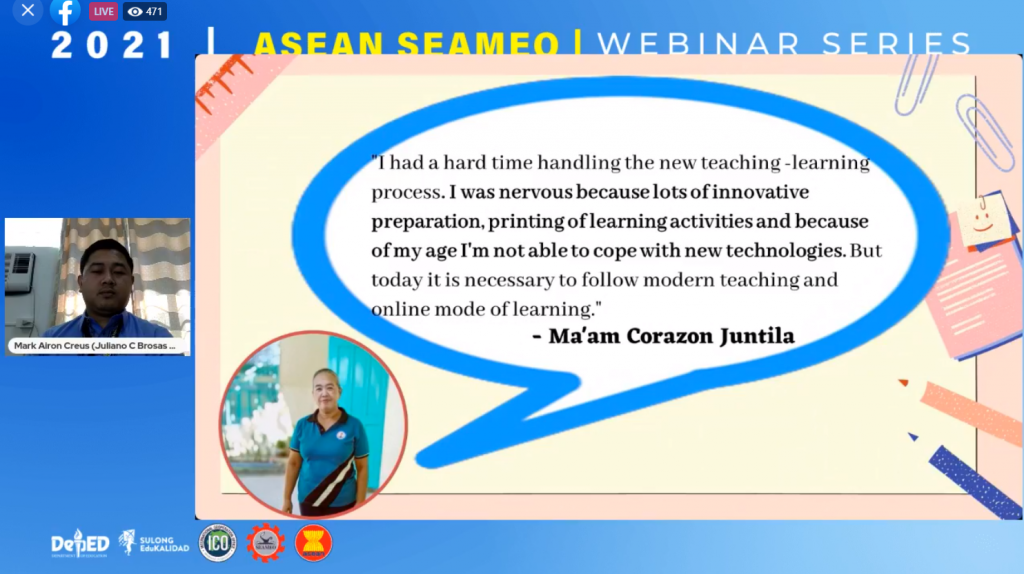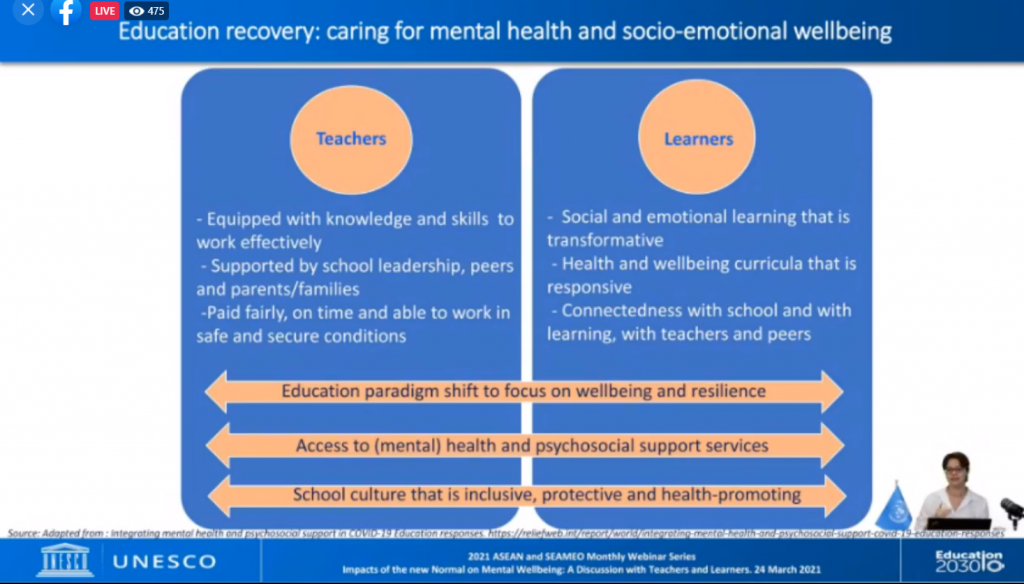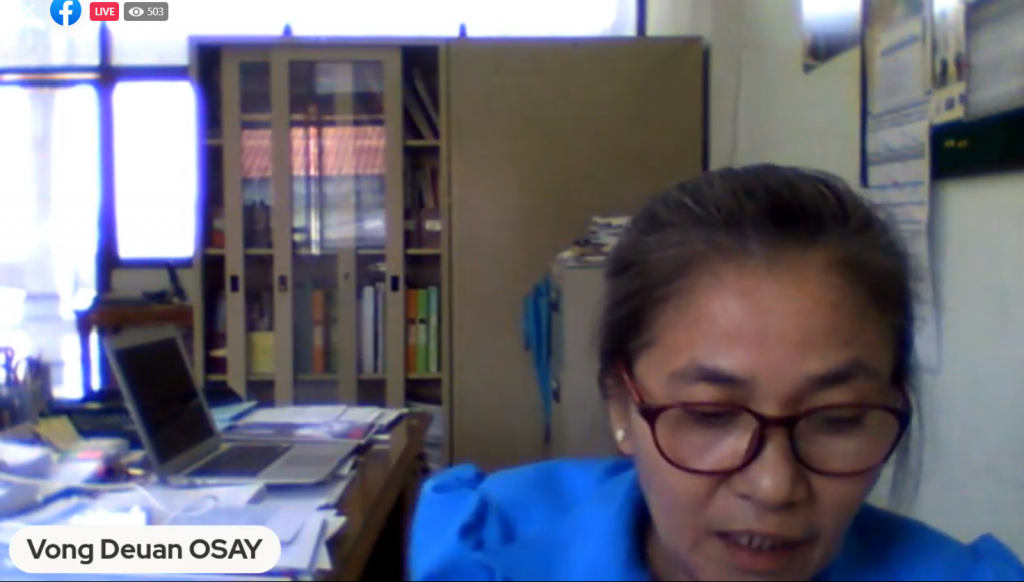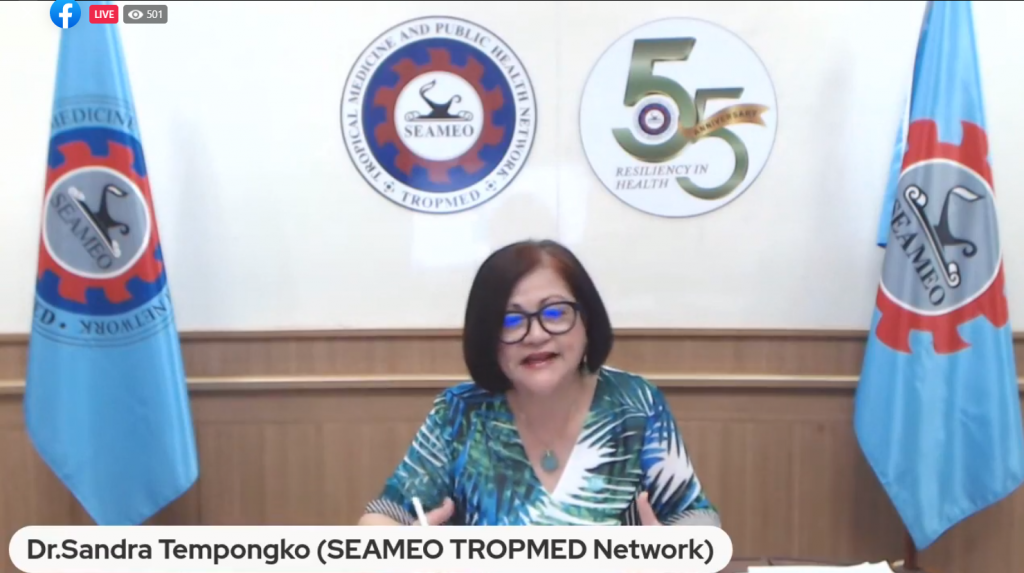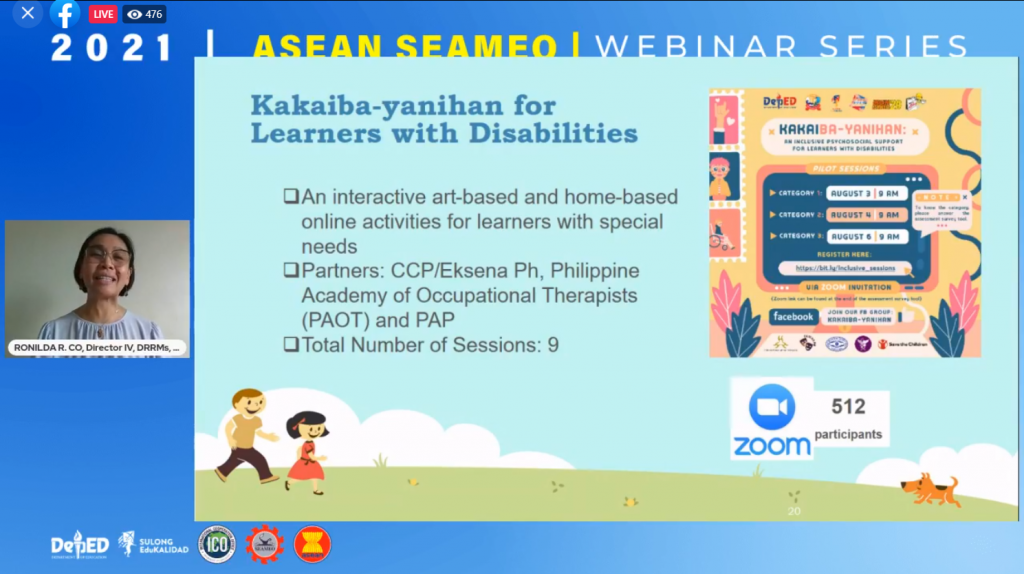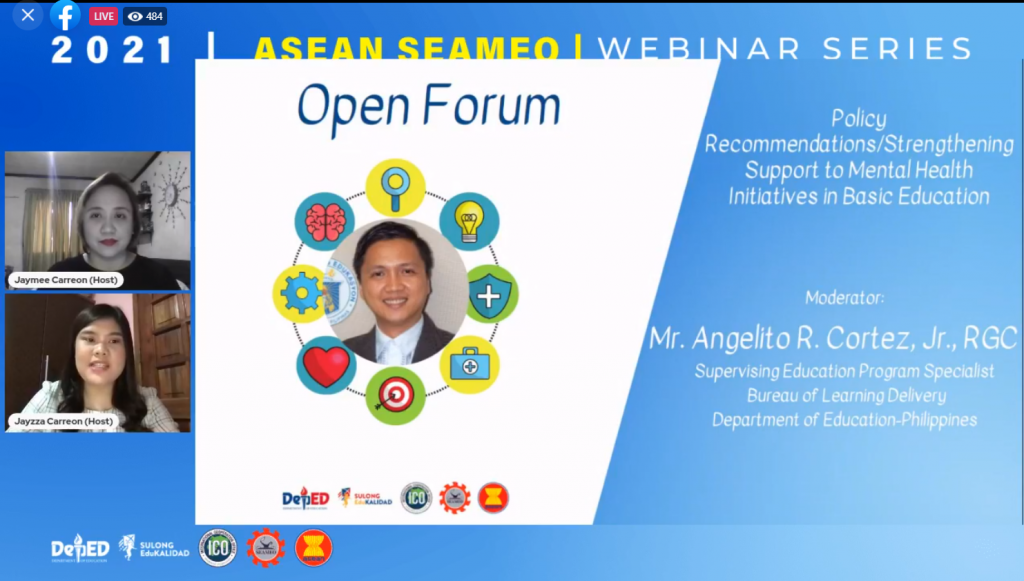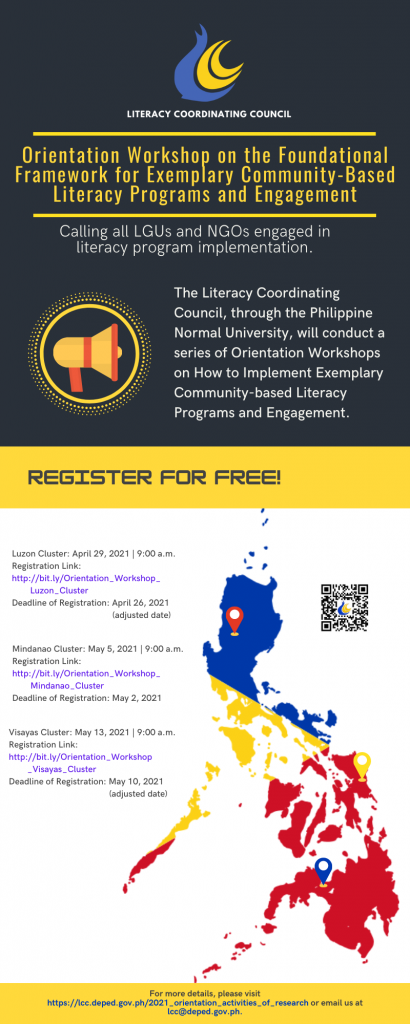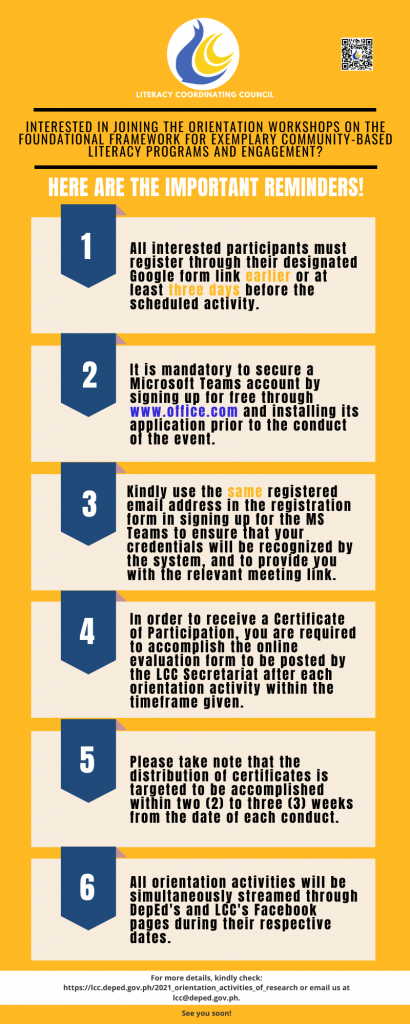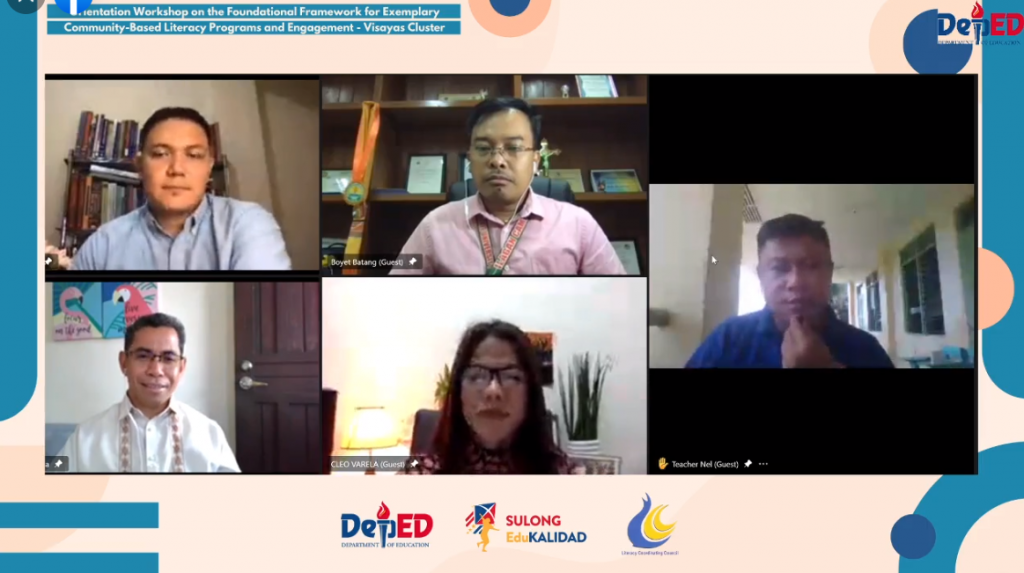
On May 17, 2021, the LCC Secretariat (LCCS) successfully concluded its series of orientation workshops in the Philippines with Visayas Cluster via Microsoft Teams. The Local Government Unit (LGU) and Nongovernment Organization (NGO) delegates from the said cluster took the opportunity to be capacitated on establishing exemplary literacy programs and projects at their local communities with the aid of the Foundational Framework and the Analytic Scoring Rubric developed by the LCC through the Philippine Normal University (PNU), the lead Council Member Agency for Research. Dr. Judy C. Bautista, Project Director of the said research project, covered the two pertinent topics while Dr. Boyet L. Batang and Dr. Leonora P. Varela moderated the discussion afterwards. Support and appreciation for the said literacy initiative poured out both from the MS Teams and online through DepEd’s and LCC’s Facebook Pages.
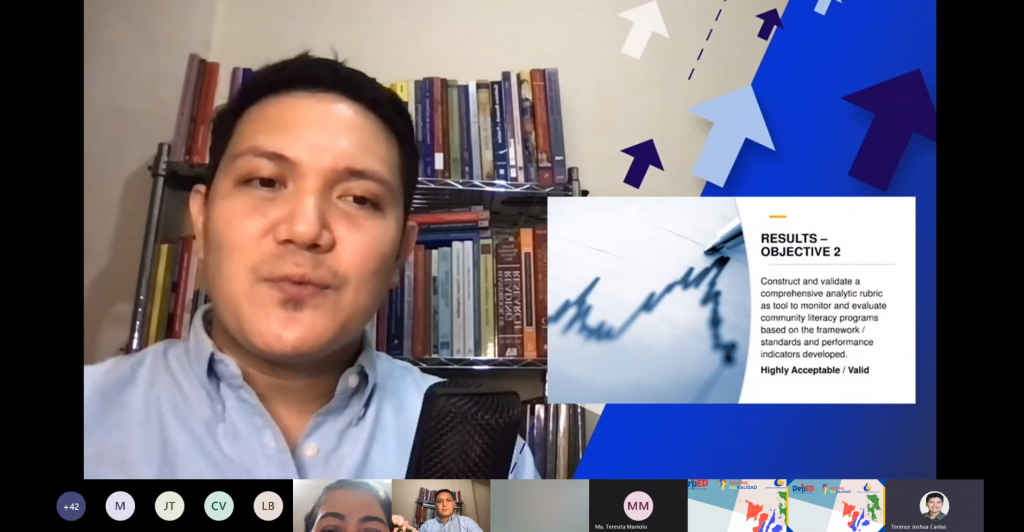
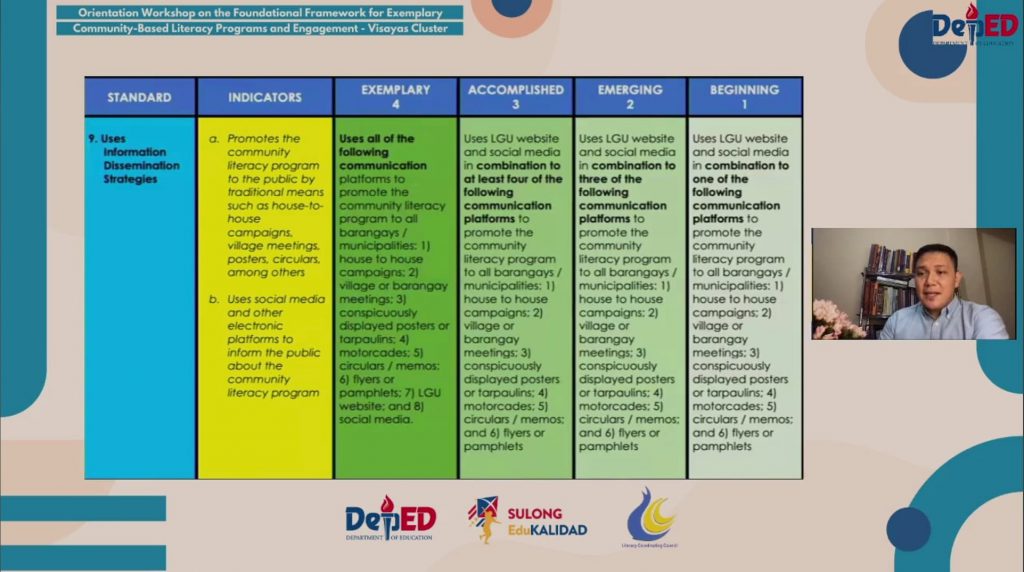
During the open forum, one of the queries raised was on the legal basis for the establishment of local LCCs. Mr. Enrico R. Mendoza, the LCCS Chief, mentioned that there have been legal bases issued as early as 2003 that encouraged LGUs in creating local LCCs. A DepEd Order entitled “Supplemental Provisions/Guidelines on the Strengthening of Local LCCs and Literacy Implementing Units (LIUs) was issued on March 25, 2003 as basis for the creation of local LCCs. (Reference: https://www.deped.gov.ph/wp-content/uploads/2003/04/DO_s2003_26.pdf). This issuance contained a copy of Joint Memorandum Circular No. 01, series 2003 made between and among DepEd, Department of the Interior and Local Government (DILG), and NEDA. The DILG also issued its own Memorandum Circular No. 2007-155 also on the Creation and Strengthening of LCCs/LIUs. (Reference: https://www.dilg.gov.ph/PDF_File/issuances/memo_circulars/MC2007-155.pdf)
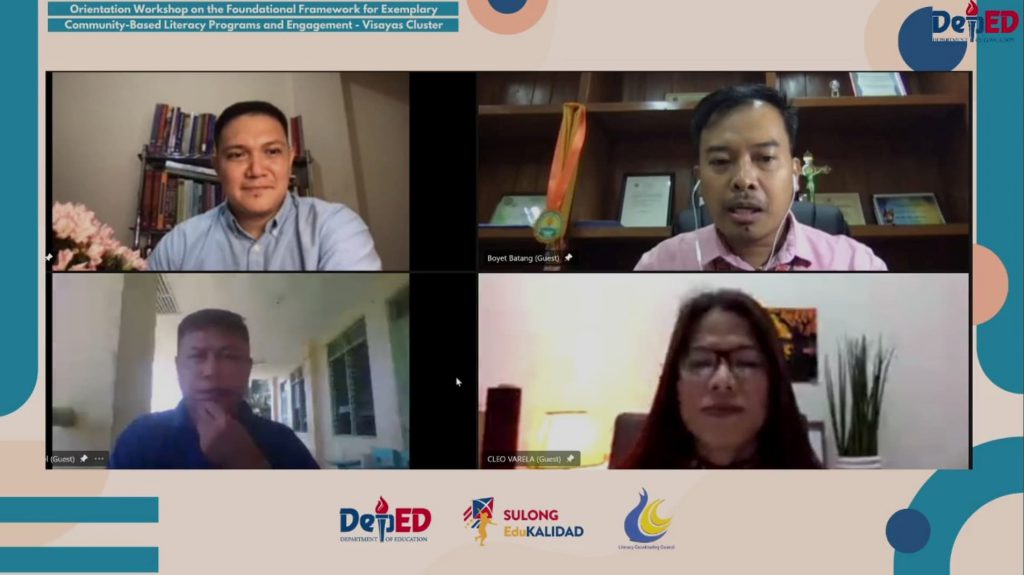
Mr. Mendoza expressed the LCCS’ willingness in providing technical assistance to LGUs in creating and strengthening of their local LCCs. He also happily informed everyone that a manual containing pertinent information is currently being crafted which is hopefully to be completed within the year. For the meantime, guidelines on this can be found at the LCC website: https://lcc.deped.gov.ph/faqs/how-do-we-create-a-local-literacy-coordinating-council/.
The LCC head also thanked the LGUs for supporting the Department of Education and implementing their own literacy programs for the disabled, elderly, out-of-school youth and adults, as well as afterschool programs and learning opportunities at the barangay or municipal level that contribute greatly to the achievement of our country’s increased literacy rates.
During the discussions, Dr. Bautista clarified that the Analytic Scoring Rubric was not specific to an age or ethnolinguistic group. It was designed to be general and encompassing so that the tool will fit to whatever literacy needs the communities may have, whether for children or adults. Moreover, the research team is also in the process of drafting a policy based on the two (2) research projects and the Analytic Scoring Rubric. The team already had initial consultation meetings, including with DepEd’s ALS Task Force. The finalization and approval of the proposed national policy is anticipated to be completed within the year for the adoption of the framework and monitoring and evaluation tool at the grassroots level through DepEd’s Alternative Learning System. Dr. Bautista informed the participants that they may access the full technical reports at: https://lcc.deped.gov.ph/research-on-literacy/ or at the official website of the Philippine Normal University.
The LCC Secretariat would like to express its heartfelt gratitude to PNU, DepED Public Affairs Service (PAS), DepED Information and Communications Technology Service (ICTS), as well as to all LGUs and NGOs all over the Philippines who actively participated via MS Teams and Facebook, for making this event a resounding success!
